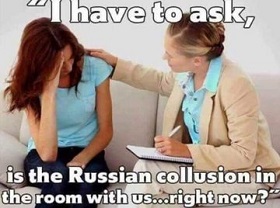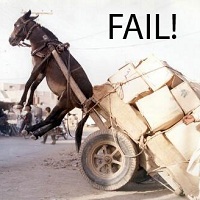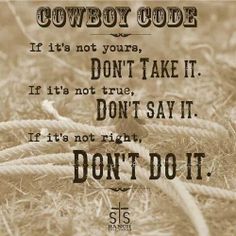The War on Poverty has increased dependency and failed in its primary effort to bring poor people into the mainstream of America’s economy and communal life.
Government programs replaced deprivation with idleness, stifling human flourishing. It happened just as President Franklin Roosevelt said it would: “The lessons of history,” he said in 1935, “show conclusively that continued dependency upon relief induces a spiritual and moral disintegration fundamentally destructive to the national fiber.”
-John Early and Phil Gramm 
When government confiscates one man’s wealth to give it to another, that’s a subsidy. Subsidy increases the thing subsidized. Always. Every time. Everywhere. Subsidize poverty, you get more poverty. Subsidize illegitimacy, you get more illegitimacy. Subsidize black victimhood, guess what? More black victimhood. Blacks are poorer in leftist cities because of leftism. End of story. -Andrew Klavan 
During the decade from 1965 to 1975, crime and welfare dependency roughly tripled in the United States and rose even more in Detroit. There was a connection between the two trends. Welfare encouraged single parenthood; fatherless boys often grew up to commit violent crimes. 
They’re on the dole — and watching the pole. Welfare recipients took out cash at bars, liquor stores, X-rated video shops, hookah parlors and even strip clubs — where they presumably spent their taxpayer money on lap dances rather than diapers, a Post investigation found. -Kate Briquelet
A database of 200 million Electronic Benefit Transfer records from January 2011 to July 2012, obtained by The Post through a Freedom of Information request, showed welfare recipients using their EBT cards to make dozens of cash withdrawals at ATMs inside Hank’s Saloon in Brooklyn; the Blue Door Video porn shop in the East Village; The Anchor, a sleek SoHo lounge; the Patriot Saloon in TriBeCa; and Drinks Galore, a liquor distributor in The Bronx. 
Despite an unprecedented increase in federal anti-poverty spending, the national poverty rate has not declined, the study finds. “[S]ince President Obama took office [in January 2009], federal welfare spending has increased by 41 percent, more than $193 billion per year,” the study says. Federal welfare spending in fiscal year 2011 totaled $668 billion, spread out over 126 programs, while the poverty rate that remains high at 15.1 percent, roughly where it was in 1965, when President Johnson declared a federal War on Poverty. 
For these individuals, the $16 trillion we’ve spent on means-tested welfare since the War on Poverty began represents a grossly inadequate expenditure, and the answer (it’s the same answer with public education, by the way) is more, more, more — more money, more programs, and more taxation. Yet after $16 trillion, we have a different kind of more, more, more — more illegitimacy, more citizens in poverty, and more inequality, with growing stickiness at the bottom. 
With the best of intentions, government created a poverty trap that wreaks havoc on the very support system the poor need most to lift themselves out of poverty: the family. Dependency has become the one enduring heirloom, passed from one generation to the next, of too many fragmented families. -Ronald Reagan 
The conventional viewpoint says we need a jobs program and we need to cut welfare. Just the opposite! We need more welfare and fewer jobs. Jobs for every American is doomed to failure because of modern automation and production. We ought to recognize it and create an income-maintenance system so every single American has the dignity and the wherewithal for shelter, basic food, and medical care. I'm talking about welfare for all. -Jerry Brown 
Liberal, Government
Charles E. Wilkins, the general manager of the C.N. Brown Co. that runs the stores, said the EBT cards in the cash phase could be used for any items, including alcohol, tobacco and gambling. Wilkins said the company gave Whiton the option of staying but she said she would not accept the cards anymore. “She didn’t think it was right and just wasn’t going to sell to people in that program anymore,” Wilkins said.
Great Society: The Ultimate Domestic Failure...
What the 1960s experiment and its 1970s results suggest is that social democratic compromise comes close enough to socialism to cause economic tragedy…
In the pain of the 1970s and early 1980s, many Americans came to recognize that the ultimate executive-led expert-driven social project of the 1960s, the White House application of Keynesian economic doctrine, was also the ultimate domestic failure.
New York Times Writers: Blue States Are The Problem...
Blue states are where the housing crisis is located. Blue states are where the disparities in education funding are the most dramatic. Blue states are the places where tens of thousands of homeless people are living on the streets. Blue states are the places where economic inequality is increasing most quickly in this country.
This is not a problem of not doing well enough; it is a situation where blue states are the problem.












